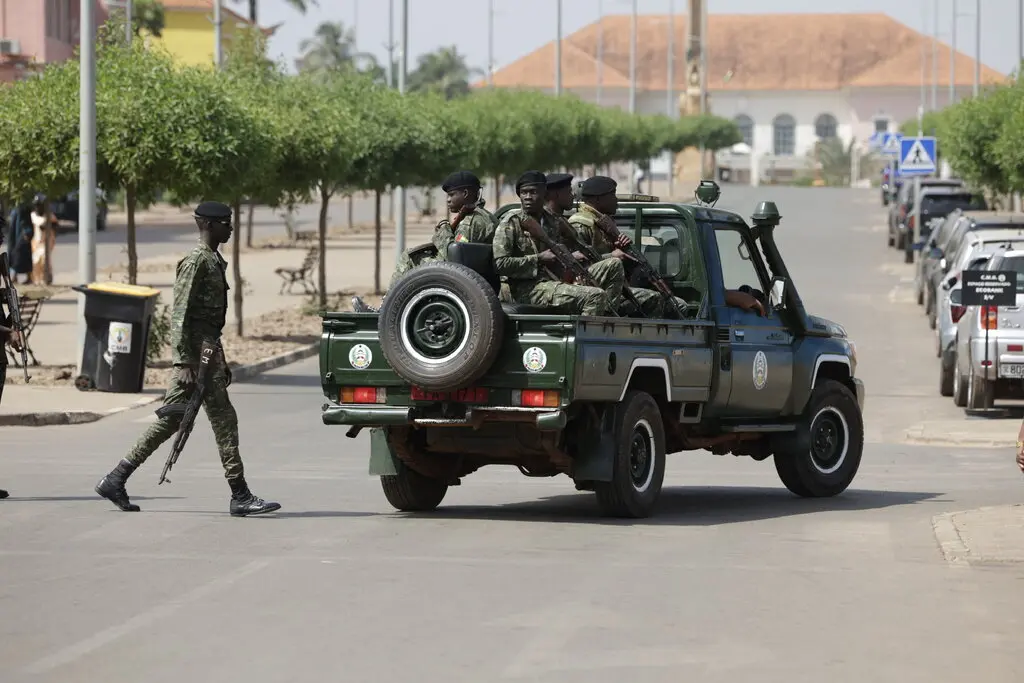
The Guinea-Bissau coup 2025 has plunged the West African nation into crisis as army officers declared they had overthrown President Umaro Sissoco Embalo and suspended the electoral process on November 26, 2025 — just a day before provisional results of the tightly contested presidential election were due. The dramatic takeover was announced on state television by a group identifying itself as the High Military Command for the Restoration of National Security and Public Order.
According to the military’s statement read by spokesperson Dinis N’Tchama, the takeover was triggered by what they described as a destabilisation plot by “certain national politicians and foreign drug barons” aimed at manipulating the election results. As part of the coup, the armed forces said they had deposed Embalo, shut down borders, enforced a nationwide curfew, and seized control of all governmental institutions.
Gunfire erupted around the presidential palace, the headquarters of the electoral commission, and other key government buildings in the capital Bissau shortly before the coup announcement, with witnesses reporting about an hour of heavy shooting and widespread panic.
Soon afterward, the military installed Horta Inta-A Na Man as transitional president, handing him the reins of the junta as head of the High Military Command. The junta announced it will govern until “further notice,” suspending all political activity and nullifying the electoral process indefinitely.
The Guinea-Bissau coup 2025 is the latest in a long line of military interventions that have destabilised the small coastal nation since independence. Since 1974, the country has endured at least nine successful coups or attempted overthrows — a pattern analysts warn perpetuates cycles of political instability, weak governance, and corruption.
Observers further note that Guinea-Bissau’s history as a transit hub for narcotics bound for Europe compounds the risks: the military’s justification for the takeover explicitly referenced links between drug-trafficking networks and political actors, suggesting the coup was framed as a fight against criminal infiltration of the state.
Regional organizations and international partners wasted no time condemning the coup. Both the African Union (AU) and the Economic Community of West African States (ECOWAS) have called for an immediate return to constitutional order, the release of detained officials, and resumption of the electoral process.
Meanwhile, former political rivals and opposition leaders have denounced the military’s takeover, accusing the junta of undermining democratic progress and demanding transparency about the fate of detained leaders and election observers.